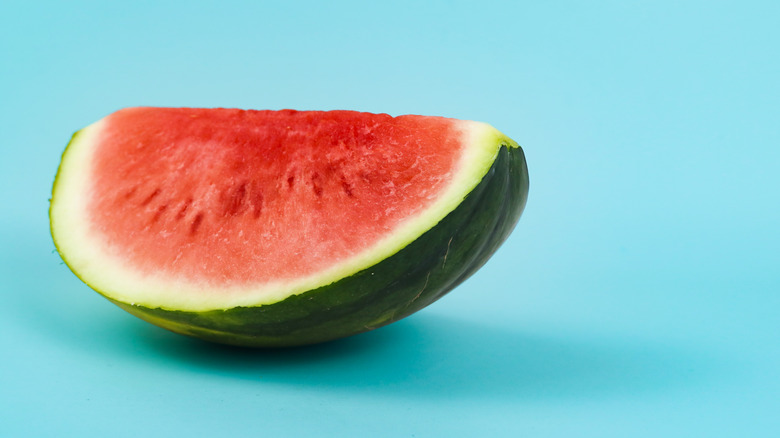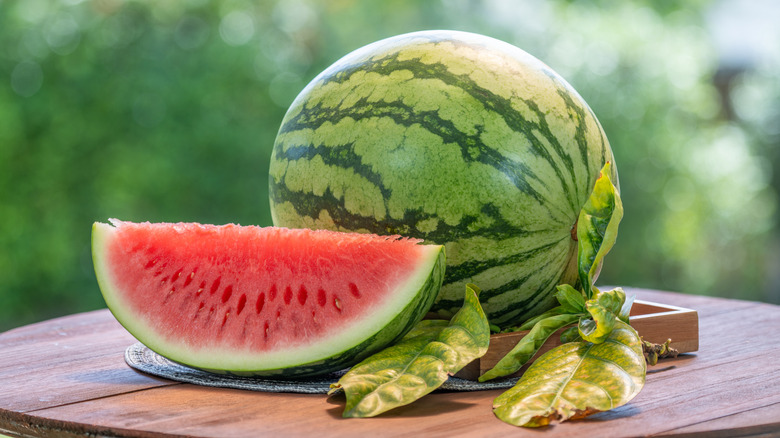Is There Such A Thing As A Naturally Seedless Watermelon?
Very few people can imagine summer without watermelon. Juicy, sweet, and surprisingly low in calories, this giant pepo berry is one of nature's best ways to beat the heat. This is actually no surprise, considering it's 92% water. Whether you cut it into big, mouthwatering wedges and take a messy, satisfying bite, or use it to make a refreshing watermelon shandy with just three ingredients, it is the ultimate treat for both your body and soul — at least, until the seeds show up. You can try every trick out there when choosing the tastiest watermelon at the store, but those stubborn little seeds never fail to make an appearance. That is, of course, until you skip the hassle and pay extra for the seedless ones. But seedless watermelons raise questions of their own. Are they natural, or are they a genetically modified product?
Before we jump to any conclusions, let's clear things up: Seedless watermelons aren't genetically modified, but they're not entirely natural. They're hybrids created through cross-breeding — a technique that combines the genes of two or more parent plants to produce new varieties with desirable traits. Before you cross seedless watermelons off your list, this method of modification is nothing new. It actually dates all the way back to 8,000 B.C. It's the reason we have sweetcorn, strawberries, avocados, Meyer lemons, and clementines.
The science behind seedless watermelons
While seedless watermelons might seem like a modern invention, they've been around for quite a while. They were invented by Japanese geneticist and Kyoto University professor Hitoshi Kihara over 70 years ago. At the time, the esteemed scientist discovered that crossing a diploid watermelon, which has two sets of chromosomes, with a tetraploid one, which has four, would produce a seedless, sterile plant with three sets of chromosomes. Simply put, the seeds are actually still there, but they're tiny, white, and undeveloped. This makes them infertile and incapable of producing new plants, which is why all seedless watermelons are hybrids.
Though groundbreaking, it took more than four decades before Kihara's creation finally became popular. But, ever since it caught on, consumer demand has continued to surge, mostly due to how convenient seedless watermelons are (and their quality). The trend took over in 2014, when 85% of watermelon sales in the United States were seedless. Another reason people like these particular watermelons so much is because they last longer. Since there are no seeds to speed up spoilage, the watermelons stay fresh and don't go mushy as quickly. If you're going through storage tips for longer-lasting watermelon, picking a seedless one buys yourself a little extra time before it goes bad.

